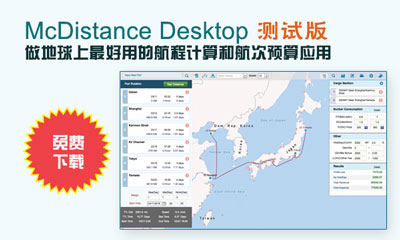 Oil from Deepwater Horizon spill washes ashore Louisiana’s coast in June 2010. (Photo courtesy of Governor Jindal’s office)
Oil from Deepwater Horizon spill washes ashore Louisiana’s coast in June 2010. (Photo courtesy of Governor Jindal’s office) New partnership allows USF-led research team to better study oil spills; group will gain valuable access to cutting-edge technologies to aid in analyzing long-term impacts
The University of South Florida’s (USF) College of Marine Science announced a new partnership with Agilent Technologies and the Gulf of Mexico Research Initiative (GoMRI) for analytical chemistry equipment to study oil spills. Funded by GoMRI and Agilent’s Research Support Program, the partnership will allow access to cutting-edge analytical instrumentation to better understand the effects of oil as well as other emerging contaminants in the environment.
The Center for the Integrated Modeling and Analysis of the Gulf Ecosystem (C-IMAGE) is a research consortium funded by GoMRI that will analyze the long-term pathways and impacts of the Deepwater Horizon (DWH) and IXTOC-1 (Mexico) incidents. While hosted through USF, C-IMAGE has 14 institutional members in the U.S. and international partners in Canada, Mexico, Germany, the Netherlands and Australia.
Agilent’s Research Support Program provided a high-performance liquid chromatography system (HPLC) to GoMRI. This instrument is capable of separating and quantifying analytes of interest, such as oil, found in a number of different matrices that were impacted by hydrocarbon exposure. The agreement will also result in the acquisition of two additional mass spectrometers for oil spill analytes. Over the next three years, sediment, fish tissue, and water samples will be collected and analyzed to advance discovery towards C-IMAGE’s main goals of improving observational and predictive tools for interpreting impacts and consequences of oil spills, better understanding the DWH and IXTOC-1 oil well blowout events, and developing novel molecular oil and biological markers to assess future submarine oil blowouts and surface spills.
“Access to these state-of-the-art technologies will allow C-IMAGE and GoMRI researchers to evaluate lingering toxic effects of oil in the Gulf of Mexico from spills separated by 36 years and over 600 miles,” said Dr. Steve Murawski, C-IMAGE Principal Investigator and professor in the USF College of Marine Science. The HPLC instrument and the two new mass spectrometers will be housed at the College of Marine Science in St. Petersburg as part of the PaleoOceanography, PaleoClimatology and Biogeochemistry and the Population and Marine Ecosystem Dynamics Laboratories.
The HPLC system, along with other instruments including Isotope Ratio Mass Spectrometers (IRMS), Gas Chromatographs coupled to both Triple Quadrapole Mass Spectrometer (GC/MS/MS) and IRMS system, and LC Triple Quad Mass Spectrometer will process biological and sediment samples collected from oil affected areas through the C-IMAGE consortium.
“Acquiring these new instruments capable of measuring the vast array of oil-derived molecules and their byproducts enable us to more accurately trace the complex fate of oil in the environment with unprecedented accuracy,” said Dr. David Hollander, Chief Science Officer of C-IMAGE and USF College of Marine Science faculty member.
The complimentary HPLC instrument supports an underlying goal and vision of the Gulf of Mexico Research Initiative.
“We are delighted see the partnership between Agilent and GoMRI’s C-IMAGE consortium,” said Dr. Chuck Wilson, GoMRI’s Chief Science Officer. “A primary vision behind the creation of GoMRI was to build oil spill research capacity in the Gulf of Mexico. This new partnership will add to that capacity and assure accurate and up to date chemical analysis equipment are available.”
Agilent Technologies is an international leader in the life science, diagnostic, and chemical markets by providing laboratories with state of the art instruments and applications for trusted results. Agilent was created as a spin-off company from Hewlett-Packard in 1999 and since has won hundreds of awards for their innovations.
C-IMAGE’s funding comes from the Gulf of Mexico Research Initiative, an independent research program funded by BP’s commitment to provide $500 million over the course of 10 years for scientific research related to the Deepwater Horizon incident. “The use of these new instruments will enhance the educational experience, not only for USF students, but those in Mexico and throughout the research consortium. Our students will be well equipped to enter the job market with access to the latest in analytical instrumentation,” said Dr. Jackie Dixon, dean of the College of Marine Science.
This investment from Agilent and GoMRI along with the continued support from the university solidifies the college’s high standards in employing state-of-the-art analytical techniques to successfully compete for additional grants that rely on analytical capabilities that otherwise would need to be contracted out to other institutions or agencies. This investment creates a competitive advantage that will bring additional attention and research funding to the college.ge.



